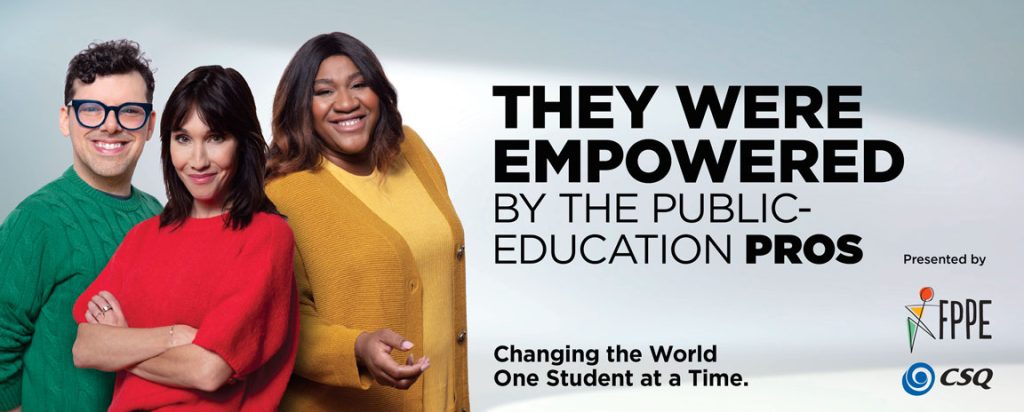The public education pros are empowering students… and society !
More than 11,000 public education professionals are hard at work in our schools. These specialists often make a lasting difference in the lives of our students. From time to time, they even perform small miracles. Their committed effort helps educate, socialize and prepare as many students as possible, thereby reducing social inequalities. For many, their help makes the difference between failure and success. Together, they represent over 30 diverse professions in three main sectors. Discover them today!

